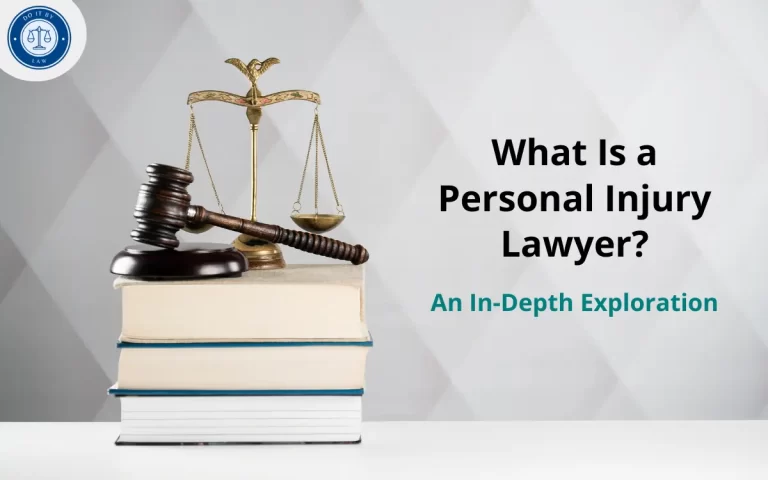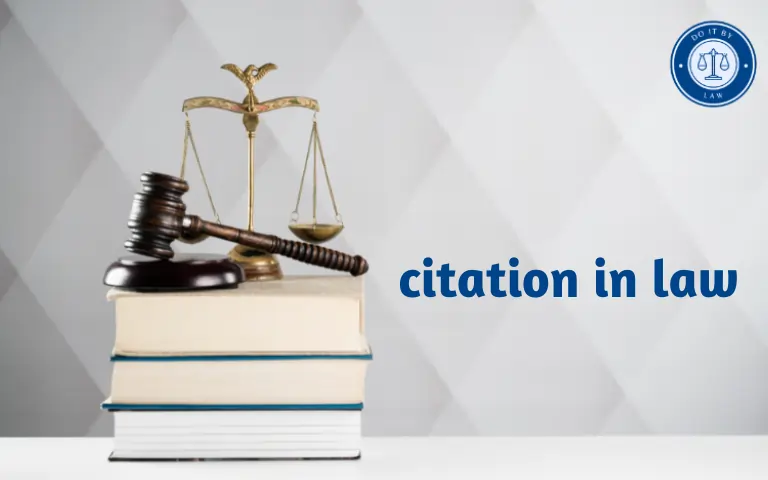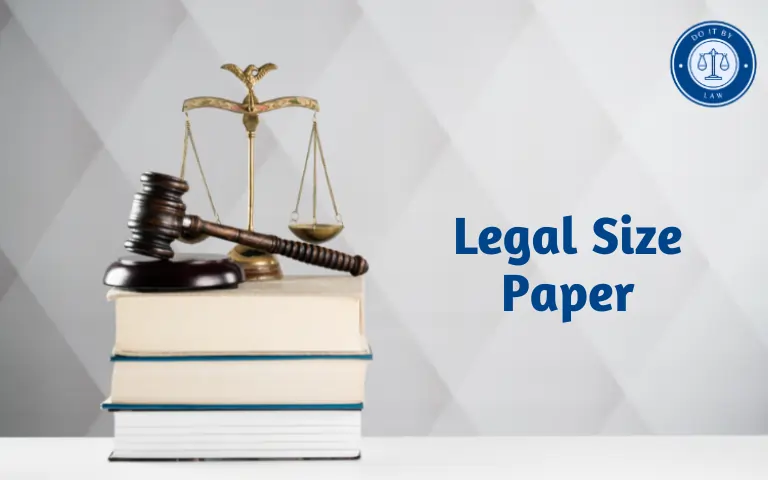Substantial Evidence: Legal Proof & Examples
Facing challenges proving a legal claim, like a common law marriage in Alabama or an administrative case? Substantial evidence is the key to validating your case with credible proof.
This guide explains the substantial evidence meaning, provides substantial evidence examples, and clarifies the substantial evidence standard across contexts like labor disputes and benefits claims.
Whether you’re navigating Alabama’s marriage laws or seeking legal insights, we’ll help you succeed. Start building your case at our homepage today!
Table of Contents
What Is Substantial Evidence?
Substantial evidence is proof strong enough for a reasonable person to accept as supporting a legal claim, such as a common law marriage or disputes in administrative law.
Unlike preponderance of evidence, which requires a greater likelihood of truth, or beyond a reasonable doubt, used in criminal cases, the substantial evidence standard focuses on credible, relevant proof sufficient to justify a legal decision without needing overwhelming evidence.
For a deeper dive, check FindLaw’s evidence guide. In the context of Common Law Marriage in Alabama, substantial evidence is critical for proving pre-2017 marriages. Explore more legal tips or visit our home page for resources.
Key Features of Substantial Evidence
- Credibility: Evidence must be reliable, such as notarized documents, joint leases, or witness statements confirming a couple’s relationship in a common law marriage.
- Relevance: The evidence must directly support the claim, like proof of cohabitation or public acknowledgment in marriage disputes or labor cases.
- Sufficiency: It’s enough to justify a legal decision, meaning it doesn’t need to be exhaustive but must convince a reasonable person. Learn more about sufficiency at Cornell’s legal definitions.
Why It Matters in Common Law Marriage
In states like Alabama, where common-law marriage recognition ended in 2017, substantial evidence is vital for pre-existing marriages to secure rights like:
- Property: Joint assets require proof of marital status.
- Inheritance: Without a will, only recognized spouses inherit under intestate laws.
- Benefits: Health insurance or pensions need legal marriage proof.
For example, a common law marriage affidavit Texas (Texas Law Help) often relies on substantial evidence like joint bank accounts or witness testimony to validate a relationship.
Comparison with Other Standards
| Standard | Definition | Use Case |
|---|---|---|
| Substantial Evidence | Credible, relevant proof for a reasonable person | Common law marriage, administrative cases |
| Preponderance of Evidence | More likely than not (51% certainty) | Civil lawsuits |
| Beyond a Reasonable Doubt | Near certainty of guilt | Criminal cases |
How to Build Substantial Evidence
To meet the substantial evidence standard, focus on:
- Documents: Joint leases, tax filings, or insurance policies showing shared life.
- Witnesses: Sworn statements from friends or family confirming public acknowledgment as a couple.
- Consistency: Evidence aligning with state laws, like Colorado’s requirements for common law marriage.
For legal support, consult Avvo’s family law experts or check our Common Law Marriage in Alabama guide.
Need to prove your common law marriage with substantial evidence? Start building your case now!
Why Substantial Evidence Matters
Substantial evidence is critical for proving legal claims, such as a common law marriage or disputes in administrative law, as it ensures decisions are based on credible, relevant proof.
In states like Alabama, where common-law marriage recognition ended in 2017, substantial evidence is vital for validating pre-existing marriages to secure rights like property, inheritance, or benefits.
Without it, couples risk losing legal protections. For broader context, explore our Common Law Marriage in Alabama guide or legal tips on our category page. Learn more about evidence standards at Cornell’s legal definitions.
Legal Protections at Stake
Without substantial evidence, couples in a common law marriage may lose:
- Property Rights: No automatic claim to shared assets, unlike formal marriages under community property laws.
- Inheritance: Without a will, non-recognized partners can’t inherit under intestate succession laws.
- Spousal Benefits: Access to health insurance, Social Security benefits, or pensions requires proof of marriage.
- Decision-Making: Non-married partners may lack authority in medical or legal decisions.
For example, in Texas, a common law marriage affidavit Texas relies on substantial evidence like joint bank accounts to prove a relationship.
Role in Administrative Cases
In substantial evidence in administrative cases, such as labor or marriage disputes, this standard ensures fair rulings. Courts use substantial evidence to review decisions, ensuring they’re not arbitrary and capricious. In Alabama, pre-2017 common-law marriages need substantial evidence to hold up in disputes. For legal support, visit Avvo’s family law experts.
Key Impacts by State
| State | Why Substantial Evidence Matters | Details |
|---|---|---|
| Alabama | Validates pre-2017 marriages | Required for marriage rights. |
| Texas | Proves cohabitation and intent | Supports common law marriage affidavit Texas. |
| Colorado | Ensures benefit eligibility | Needed for common law marriage affidavit Colorado. |
Preventing Legal Challenges
Substantial evidence reduces disputes by:
- Clarifying Status: Proves a marriage exists, avoiding conflicts over full faith and credit across states.
- Supporting Affidavits: Strengthens documents like a common law marriage affidavit Colorado (Colorado Courts).
- Avoiding Litigation: Clear evidence minimizes costly court battles.
Explore more on our home page for resources.
Comparison with Other Standards
Unlike substantial evidence vs preponderance of evidence, which requires a 51% likelihood, substantial evidence only needs credible proof to support a claim. It’s less stringent than clear and convincing evidence, used in cases requiring higher certainty. See Nolo’s evidence guide for details.
Substantial Evidence vs Preponderance of Evidence
Understanding the difference between substantial evidence and preponderance of evidence is crucial when proving legal claims, such as a common law marriage or disputes in administrative law.
These standards determine how much proof is needed to support a claim, and each applies in different legal contexts. In Alabama, where common-law marriage recognition ended in 2017, substantial evidence is key for validating pre-existing marriages, while preponderance of evidence often applies in civil disputes.
| Feature | Substantial Evidence | Preponderance of Evidence |
|---|---|---|
| Definition | Credible proof supporting a claim | Proof showing a claim is more likely true |
| Burden | Lower; enough to justify a reasonable belief | Higher; over 50% likelihood |
| Use Case | Administrative cases, common law marriage | Civil lawsuits, family law disputes |
| Example | Joint lease for marriage affidavit | Multiple documents proving breach of contract |
Definitions and Core Differences
- Substantial Evidence: This standard requires enough credible, relevant proof to convince a reasonable person that a claim, like a common law marriage, is valid. It’s commonly used in administrative cases and focuses on quality over quantity. For example, a common law marriage affidavit Texas (Texas Law Help) might use joint bank accounts as substantial evidence.
- Preponderance of Evidence: This standard requires proof that a claim is more likely true than not (over 50% certainty). It’s used in most civil cases, such as contract disputes, and demands a higher degree of likelihood than substantial evidence. See Cornell’s preponderance guide for details.
Application in Common Law Marriage
In states like Texas or Colorado, substantial evidence is used to prove a common law marriage through:
- Documents: Shared leases, tax filings, or insurance policies.
- Witness Testimony: Statements confirming public acknowledgment as a couple.
- Public Acts: Evidence of calling each other spouse.
For example, in Alabama, pre-2017 marriages need substantial evidence like a notarized affidavit to secure inheritance rights. In contrast, preponderance of evidence might apply in a civil dispute over property division, requiring more extensive proof to tip the scales. For legal help, consult Avvo’s family law experts.
Legal Implications
- Substantial Evidence:
- Lower Threshold: Only needs enough proof to support a claim, not prove it definitively.
- Administrative Focus: Used in hearings, like labor disputes or marriage validations, to ensure decisions aren’t arbitrary and capricious.
- Example: A single joint bank account and witness statement may suffice for a common law marriage affidavit Colorado (Colorado Courts).
- Preponderance of Evidence:
- Higher Threshold: Requires a majority of evidence to favor the claim, often involving multiple sources.
- Civil Cases: Common in divorce or custody disputes, where courts weigh all evidence to determine likelihood.
- Example: In a property dispute, multiple documents and testimonies are needed to prove ownership.
For deeper insights, check Nolo’s evidence guide.
Practical Considerations
When proving a claim:
- Substantial Evidence: Focus on quality evidence, like notarized documents or credible witnesses. It’s less about volume and more about relevance.
- Preponderance of Evidence: Gather as much evidence as possible to outweigh the opposing side’s claims, ensuring a stronger case.
- State-Specific Rules: In Alabama, substantial evidence is critical for pre-2017 marriages, while civil disputes post-2017 may use preponderance of evidence.
Explore more on our home page for resources.
Why It Matters
Choosing the right standard impacts your legal strategy:
- Substantial Evidence: Ideal for quicker resolutions in administrative settings, like proving a common law marriage for benefits.
- Preponderance of Evidence: Necessary for civil cases where disputes require a clear majority of proof, such as challenging a will.
Understanding substantial evidence vs preponderance of evidence helps you prepare the right proof for your case, avoiding costly legal setbacks.
Need clarity on substantial evidence or preponderance of evidence? Build your case today!
How to Gather Substantial Evidence
Gathering substantial evidence is essential for proving legal claims, such as a common law marriage or disputes in administrative law. In states like Alabama, where common-law marriage recognition ended in 2017, substantial evidence is crucial for validating pre-existing marriages to secure rights like property or benefits.
For Alabama-specific rules, check our Common Law Marriage in Alabama guide or explore legal tips on our category page. Learn more about evidence standards at Cornell’s legal definitions.
Steps to Gather Substantial Evidence
To build a strong case with substantial evidence, follow these steps:
- Identify State Requirements: Confirm what your state, like Texas or Colorado, requires for a common law marriage. For example, Texas needs proof of cohabitation, mutual intent, and public acknowledgment.
- Collect Relevant Documents: Gather records showing a shared life, such as joint leases, tax returns, or insurance policies. These are key for a common law marriage affidavit Texas (Texas Law Help).
- Secure Witness Statements: Obtain sworn affidavits from friends, family, or neighbors confirming your relationship. These strengthen claims for inheritance rights.
- Notarize Evidence: Ensure documents or affidavits are notarized for legal validity, especially for a common law marriage affidavit Colorado (Colorado Courts).
- Consult a Lawyer: Work with a legal expert to verify compliance with state laws. Visit Avvo’s family law experts for support.
Types of Substantial Evidence
| Evidence Type | Description | Example |
|---|---|---|
| Documents | Records showing shared life | Joint lease, shared bank account, or joint tax filings |
| Witness Testimony | Sworn statements from others | Affidavit from a friend confirming public acknowledgment as a couple |
| Public Acts | Proof of acting as a married couple | Insurance policy listing partner as spouse |
Tips for Success
- Organize Records: Keep all documents dated and easily accessible to present a clear timeline.
- Use Credible Witnesses: Choose people who know your relationship well, like close friends or family, to provide reliable testimony.
- Align with State Laws: Ensure evidence meets specific criteria, such as Alabama’s pre-2017 requirements for common-law marriages.
- Maintain Copies: Store duplicates of all evidence to avoid loss during legal proceedings.
For more guidance, see Nolo’s evidence guide or explore our home page.
Common Mistakes to Avoid
- Incomplete Documentation: Missing key records, like joint bills, can weaken your case.
- Unnotarized Affidavits: Non-notarized statements may not be accepted in court.
- Ignoring State Rules: Each state, like Colorado, has unique requirements for substantial evidence.
Why It’s Critical
Substantial evidence ensures your common law marriage is recognized, avoiding issues with:
- Property Disputes: Without proof, you may lose claims to shared assets under community property laws.
- Benefit Denials: Lack of evidence can block access to Social Security benefits or pensions.
- Interstate Recognition: Substantial evidence supports full faith and credit across states.
Start gathering substantial evidence to secure your rights. Act now!
Conclusion
Substantial evidence is the cornerstone for proving legal claims, whether validating a common law marriage, navigating substantial evidence in administrative cases, or resolving disputes in administrative law.
In states like Alabama, where common-law marriage recognition ceased in 2017, substantial evidence remains critical for pre-existing marriages to secure rights such as property, inheritance, or benefits.
This guide has explored the substantial evidence meaning, provided substantial evidence examples like joint leases or witness statements, and outlined how to meet the substantial evidence standard through credible, relevant proof.
By comparing substantial evidence vs preponderance of evidence and detailing steps to gather evidence, we’ve equipped you to build a strong case.
For more insights, dive into our Common Law Marriage in Alabama guide, explore legal tips on our category page, or visit our home page for additional resources. Don’t leave your rights to chance—secure your legal future with substantial evidence today!
Ready to protect your rights? Consult Avvo’s family law experts or start gathering substantial evidence now!



